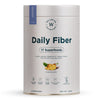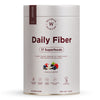Cholesterol has been the subject of countless debates in the health and wellness world—often misunderstood and unfairly villainized. While many fear it as the root cause of heart disease, cholesterol is actually a vital player in essential bodily functions, from hormone production to maintaining cell integrity and synthesizing vitamin D.
So, is cholesterol really the enemy, or have we been misled? In this article, we’ll bust some of the biggest cholesterol myths, separating fact from fiction with solid scientific evidence.
Myth #1: All Cholesterol is Bad
One of the most widespread misconceptions about cholesterol is that it’s inherently harmful. In reality, cholesterol is essential for various bodily functions, including hormone production, cell membrane integrity, and vitamin D synthesis. The key lies in understanding the different types of cholesterol and their impact on health.
Cholesterol is carried through the bloodstream by lipoproteins, primarily categorized into:
Low-Density Lipoprotein (LDL)
Often labeled as "bad" cholesterol, LDL can contribute to plaque buildup in the arteries. When excessive, it increases the risk of atherosclerosis, heart attacks, and strokes. However, not all LDL particles are equally dangerous. Research suggests that small, dense LDL particles are more likely to penetrate arterial walls and cause inflammation, while larger LDL particles are relatively less harmful [NIH].
High-Density Lipoprotein (HDL)
Known as "good" cholesterol, HDL plays a protective role by transporting excess cholesterol from the bloodstream to the liver for excretion. Higher HDL levels are associated with a lower risk of cardiovascular disease.
Myth #2: Eating Cholesterol-Rich Foods Raises Blood Cholesterol
Cholesterol-rich foods like eggs, shellfish, and dairy are considered bad by many individuals with the assumption that consuming them would directly raise blood cholesterol levels. However, modern research has shown that dietary cholesterol (eg. from eggs) has little impact on serum cholesterol for most people [NIH].
The body tightly regulates cholesterol levels by adjusting its own production. When you consume more cholesterol from food, the liver produces less, and when dietary cholesterol intake is low, the liver compensates by making more. This natural balance means that for the majority of people, eating cholesterol-rich foods does not significantly increase LDL ("bad") cholesterol or contribute to heart disease.
In fact, many cholesterol-containing foods are packed with essential nutrients. Eggs, for example, are rich in protein, choline, and antioxidants that support brain and heart health. Shellfish provide omega-3 fatty acids and vital minerals like zinc and selenium. Instead of fixating on dietary cholesterol, it's more important to focus on reducing processed foods, trans fats, and excessive sugar intake—true culprits in poor heart health.
A balanced diet that includes whole, nutrient-dense foods while minimizing unhealthy fats and refined carbohydrates is the key to maintaining healthy cholesterol levels and overall well-being.
Myth #3: Only Overweight People Have High Cholesterol
A common misconception is that high cholesterol only affects individuals who are overweight or obese. While excess body fat can contribute to elevated cholesterol levels, it's far from the only factor at play. Genetics, diet, stress, and lifestyle choices all influence cholesterol levels, regardless of body weight.
A study published in Circulation (NIH) highlights that even individuals with a normal BMI can have high LDL ("bad") cholesterol due to genetic predisposition. This condition, known as familial hypercholesterolemia, can lead to elevated cholesterol levels despite a healthy weight and lifestyle [NIH]. Additionally, chronic stress and a diet high in processed foods and unhealthy fats can also disrupt cholesterol balance in lean individuals.
Maintaining heart health isn’t just about weight management—it requires a holistic approach, including regular exercise, a nutrient-rich diet, and stress reduction. Keeping cholesterol in check is about overall metabolic health, not just the number on the scale.
Myth #4: The Higher Your HDL, the Healthier You Are
HDL cholesterol is often praised as the “good” cholesterol because it helps remove excess cholesterol from the bloodstream. However, more isn’t always better. While moderate HDL levels are protective, excessively high levels may actually pose health risks. Studies have found that individuals with extremely high HDL levels (>90 mg/dL) had a paradoxically increased risk of heart disease [NIH]. Researchers suggest that at very high concentrations, HDL may lose its protective effects and instead contribute to inflammation or impaired cholesterol metabolism.
Rather than aiming for higher HDL levels, the key is maintaining a balanced lipid profile through a healthy diet, regular exercise, and lifestyle choices that support overall heart health.
Myth #5: Cholesterol Medication is the Only Solution
Statins are widely prescribed to manage high cholesterol, but they’re not the only option. A heart-healthy lifestyle—including a nutrient-rich diet, regular exercise, and stress management—plays a crucial role in maintaining optimal cholesterol levels.
In addition to lifestyle changes, natural alternatives like phytosterol esters have been clinically proven to help reduce cholesterol by blocking its absorption in the gut [NIH]. These plant-based compounds mimic cholesterol, preventing excess amounts from entering the bloodstream and supporting overall heart health.
While statins can be effective for those at high risk of cardiovascular disease, incorporating healthy habits and natural supplements can provide additional support in managing cholesterol levels holistically.
Practical Tips for Maintaining Healthy Cholesterol Levels
To maintain optimal cholesterol levels, consider the following:
-
Adopt a Heart-Healthy Diet: Increase intake of fiber-rich foods like oats, legumes, and fruits while reducing trans fats found in processed foods.
-
Exercise Regularly: Engage in at least 150 minutes of moderate-intensity aerobic activity per week to improve cholesterol balance.
-
Choose Healthy Fats: Replace saturated fats with unsaturated fats from sources like avocados, nuts, and olive oil.
-
Limit Refined Carbs and Sugar: High sugar intake has been linked to lower HDL and higher LDL cholesterol levels.
-
Consider Natural Supplements: Omega-3 fatty acids, plant sterols, and soluble fiber supplements can aid in cholesterol management.
-
Get Regular Screenings: Even if you feel healthy, regular lipid profile tests can help detect issues early.
Remember, cholesterol is not the enemy rather, an imbalance of cholesterol types can contribute to health problems. Understanding the difference between LDL and HDL, the role of dietary cholesterol, and the impact of lifestyle choices can help individuals make informed decisions about their heart health.
While medication may be necessary for some, diet and exercise remain powerful tools for maintaining healthy cholesterol levels. By debunking these common myths, we can shift the conversation around cholesterol toward evidence-based approaches that support long-term health.
FAQs
1. What are some nutritional strategies to combat high cholesterol?
A heart-healthy diet rich in fiber, healthy fats, and whole foods can help manage cholesterol levels. Consuming fiber-rich foods like oats, legumes, and fruits helps reduce LDL ("bad") cholesterol, while healthy fats from avocados, nuts, and olive oil support heart health. Limiting processed foods, trans fats, and excessive sugar intake also plays a crucial role in maintaining balanced cholesterol levels.
2. How can a plant-based diet help lower cholesterol?
A plant-based diet is naturally rich in fiber, antioxidants, and healthy fats, all of which contribute to lower cholesterol levels. Foods like legumes, whole grains, nuts, seeds, and vegetables help reduce LDL cholesterol while promoting heart health. Additionally, plant sterols found in foods like nuts and seeds can block cholesterol absorption in the gut, further supporting healthy lipid levels.
3. Can drinking certain beverages help reduce cholesterol levels?
Yes, some beverages can support cholesterol management. Green tea is rich in catechins, which help lower LDL cholesterol, while drinks high in soluble fiber, such as oat milk, can aid in cholesterol reduction. Additionally, beverages containing plant sterols or omega-3-rich ingredients, like flaxseed or chia seed smoothies, can contribute to better heart health.
4. What role does omega-3 fatty acids play in managing cholesterol?
Omega-3 fatty acids, found in fatty fish, flaxseeds, and walnuts, help reduce triglycerides and inflammation while supporting overall heart health. They can also slightly raise HDL ("good") cholesterol and lower the risk of plaque buildup in arteries. Incorporating omega-3-rich foods or supplements into a balanced diet is an effective way to support cholesterol management.

































 DOWNLOAD NOW
DOWNLOAD NOW
